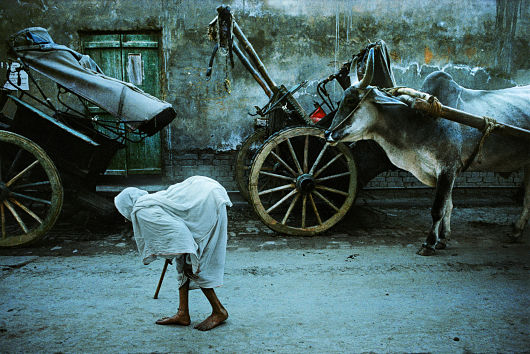
Global poverty is nothing new, but some of its causes might be commonly overlooked or forgotten. Though there are many reasons for the manifestation of poverty, there are five largely important causes that need more attention from those who can make a difference.
1. Inadequate education is a highly agreed upon cause of poverty, both in first world nations as well as poverty stricken developing countries. Commonly, education quality differs between urban and rural areas, as well as between wealthy neighborhoods and poorer parts of cities. According to Project Partner of China, rural children are more likely to attend deteriorating school facilities and face insufficient materials. Meanwhile, urban children typically have outstanding educational experiences that allow them to prosper throughout their lives. Without a proper education, the cycle of poverty often continues. Children born into poverty have a difficult time receiving an education that will support them throughout life and pull them out of poverty.
2. Healthcare access varies around the world, but in a majority of poverty stricken countries little to no healthcare is provided, especially to those in extreme poverty. Inverse care, where those better off have more access to healthcare but fewer needs for it, benefits the wealthy and worsens conditions for the poor. Global Issues reported that “2.2 million children died each year because they are not immunized” due to lack of healthcare.
3. Disease goes hand in hand with healthcare, or lack thereof, and that makes it all the more obvious why healthcare is critical. Diseases quickly spread through areas that lack proper health education and offer little healthcare. As these diseases spread, it becomes more difficult for families to take care of themselves, much less thrive. According to Global Issues, “40 million people are living with HIV/AIDS, [resulting in] 3 million deaths in 2004,” leaving 15 million children orphaned. Though HIV/AIDS causes an extremely high number of fatalities, there are 350-500 million cases of malaria each year, with 1 million of those ending fatally. Notably, 90 percent of deaths from malaria are found in Africa alone. While prevention is desirable, a cure is needed to truly make a lasting difference.
4. Dependency is possibly the most overlooked issue on this list. Dependency is often associated with laziness or the concept that those dependent cannot support themselves, but it goes much deeper than that. First-world countries have created a system that keeps poverty riddled countries from being able to provide for themselves. That, however, does not mean the system was intended to push third-world countries further into poverty. Rather, the truck loads of secondhand items that are continuously shipped into third-world countries have crippled their industries, and thus made them dependent on aid. By investing in these countries to help them rebuild an economy that can flourish, more developed countries will no longer be handing them momentary help, but making a lasting impact on their livelihood.
5. Ignorance and apathy, though two different notions, result in similar outcomes. Lacking the knowledge to care or to make a difference is a sad reality among many people in the world. Apathy, on the other hand, is not wanting to gain the knowledge to improve the lives of others. It is often easiest to live a life of ignorance, so many do. Occasionally donating to your local food drive or clothing shelter are great ways to start improving the lives of others, but going the distance to educate yourself and learning how to permanently aid those less fortunate will make a lasting difference. All of the manifestations of poverty cannot simply be numbered to five, but these causes play a large role in the sad reality. Gaining education over what needs to be done to help the human race is the perfect place to start and improve the conditions of those in need.
– Katherine Wyant
Sources: Community Empowerment Collective, Project Partner of China Global Issues
Photo: Steve McCurry
Photo: Steve McCurry


No comments:
Post a Comment